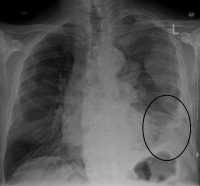AACR, Author Interviews, Biomarkers, Breast Cancer, Cancer Research / 11.04.2024
AACR24: MUC4 is a Biomarker of Metastasis in Triple Negative Breast Cancer and Can Help Improve Treatment Results
MedicalResearch.com Interview with:
RJ Tesi M.D.
CEO and Founder of INmune Bio
MedicalResearch.com: What is the background for this study? What are the main findings?
- MUC4 expression by high-risk breast cancer (HER2+ or TNBC) is a biomarker that predicts resistance to therapy and an increased risk a metastasis. MUC4 expression can be determined at time of biopsy and therapeutic decisions should be adjusted to optimize the chance of response to first line therapy.
- Soluble TNF causes the up regulation of immune checkpoint proteins of cells of the TME. This includes CD47 and SIRPa on tumor based macrophages and CTLA4, PD1, LAG3 and TIGIT on T cells in the TME. INB03 is a pan immune checkpoint modulator. Treatment with INB03 downregulates all immune checkpoint proteins on the cells. Downmodulation of all immune checkpoint proteins improves response to immunotherapy.
- In TNBC, MUC4 expression predicts both resistance to anti-PD1 therapy and increased risk of distant metastasis. Treatment with INB03 decreases expression of proteins associated with tumor metastasis, decreases the number of metastasis and improves response to anti-PD1 therapy. Early use of INB03 may prevent distal disease and improve tumor control.






























